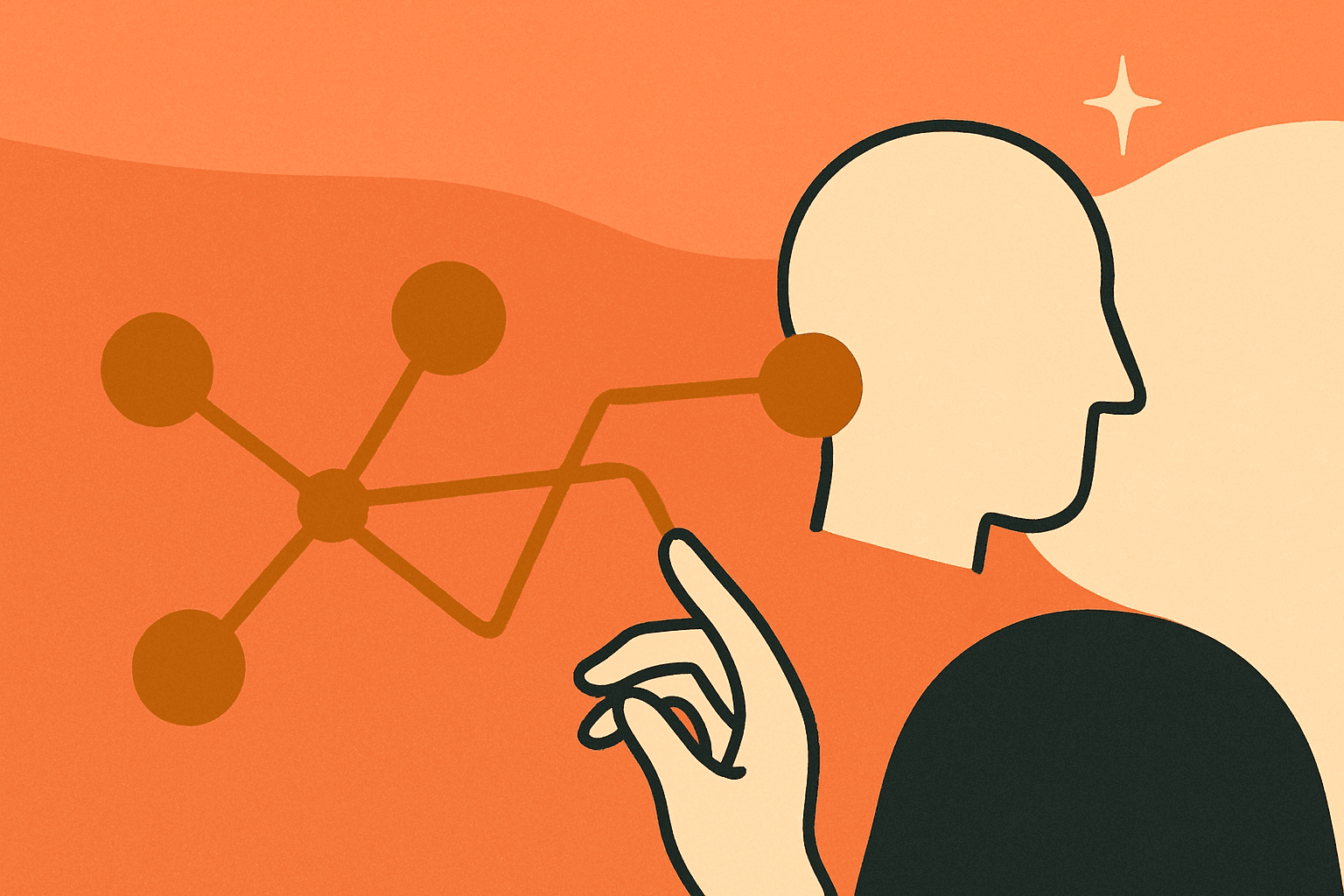Can AI Make Us Better Risk Takers?
Michaela Murphy
Mar 21, 2025

All this talk around redefining our skillsets as the age of AI intensifies, let’s indulge the case for AI actually boosting our creativity
Like most people, I use my lunch break as a time to read a little. When I sit down for lunch, I challenge myself to find two new articles, whether it’s a current news story or a preprint research paper.
Settling into one of my daily reads this week, I came across this short piece:
AI Is Redefining the Role of the Scientist – Here’s How
The title immediately drew me in. Scientists are an essential part of uncovering and weaving our understanding the tapestry of our world. Yet, the role of a scientist is so incredibly vast, spanning across different principles, fields, and methodologies. With their work circling not just experimentation and observation, but the synthesization and connection of complex ideas and communication of those findings. The ever-expanding duties of scientist means their work is continually evolving, and adapting to artificial intelligence is no different.
How is AI redefining the role of a scientist right now? AI and lab automation are shifting scientists' roles from manual work to more analytical, strategic and creative tasks.
Let’s take the example of cell line development. AI can automate and handle tasks like liquid handling, incubation, and imaging, with speed, precision and adaptability in their workflows making the process much more smoother and efficient, while also reducing human error for reliability and reproducibility. This shift allows scientists to move beyond more manual time-consuming aspects of research and focus on more complex, creative, and higher-level decision-making. The integration of AI into these processes is transforming how research is conducted, enabling scientists to work more efficiently and effectively, and opening up new possibilities for innovation and discovery.
AI and lab automation are shifting scientists' roles from manual work to more analytical, strategic and creative tasks. Lifting us up to be more productive and confident in our decision could lead us to be more creative and take more risk.
There’s no doubt that AI is fundamentally redefining our professional roles and priorities (and personal too). We constantly hear about the importance of becoming AI-literate and incorporating AI into our workflows, but one thing feels like it is continuously overlooked regarding the deeper impact of AI integration: what it enables us to do.
This idea of AI-enablement has stuck in my head, as we have been brainstorming about our upcoming release here, at Ergodic, our Orbits, an AI-first workspace. The mission behind Orbits is to provide individuals with a unified platform where all their data, structured and unstructured, and analysis reside in one place, where they can explore that data through our AI agent, Halley, to uncover new insights. Often, during our brainstorming sessions, we focus on how different features can benefit users whether its to help an individual or enterprise save time, costs, or reduce risk.
But, reading this article, through the scope of a scientist who is now in industry, made me think about the broader possibilities of what this kind of freed time can actually lead to for scientists, and in general any AI user.
Would having stronger analysis through data and improved decision-making drive people to be more creative? Could it inspire them to test riskier hypotheses or pursue more ambitious objectives, knowing they have the support of an AI agent accelerating their workflow? Or, is it more comfortable to stay within the boundaries of what the platform offers, simply accelerating work?
At first, I immediately assume the latter would lead to cognitive fatigue, but maybe that is just me, and also raises the possibility that AI could help alleviate burnout and create a more balanced approach to life and work.
So that leaves a final interesting question: As AI frees up mental bandwidth and offers clearer insights, will it spark us to take greater risks or primarily serve to streamline existing processes?
(I’m certainly rooting for it to bring on more creative potential!)
If you are keen, our team has created a Slack channel for anyone interested in building their AI knowledge base to learn from each other, share articles and papers, and contribute to building impactful AI!
Join Our Building AI for Impact Slack: Slack